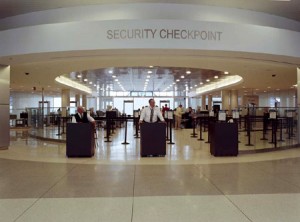 The killing of Osama bin Laden by U.S. military forces may have been a huge victory for President Obama, but it has added to the amount of security risks American travelers face in 2011. The U.S. State Department has already begun warning overseas travelers about the potential for an Al Qaeda-sponsored retaliation attack. While anti-American violence has always been an issue for travelers, the death of bin Laden is thought to give way to a potential increase in terrorist-sponsored violence. According to the State Department, public services may temporarily close or periodically suspend service in efforts to assess their security postures. This newly enacted worldwide alert is planned to remain in effect through August 1, 2011.
The killing of Osama bin Laden by U.S. military forces may have been a huge victory for President Obama, but it has added to the amount of security risks American travelers face in 2011. The U.S. State Department has already begun warning overseas travelers about the potential for an Al Qaeda-sponsored retaliation attack. While anti-American violence has always been an issue for travelers, the death of bin Laden is thought to give way to a potential increase in terrorist-sponsored violence. According to the State Department, public services may temporarily close or periodically suspend service in efforts to assess their security postures. This newly enacted worldwide alert is planned to remain in effect through August 1, 2011.
Responses to the heightened security conditions have already begun with the U.S. government’s new security requirements imposed upon airlines. Beginning in May 2011, airlines will be required to check no-fly lists much more quickly in efforts to flag suspected terrorists. This new mandate came into effect after a man accused of an attempted car bombing in Times Square was allowed to board an international flight despite being on a no-fly list.
Given the amount of increased uncertainty and volatility the current travel situation possesses, American travelers are strongly urged to limit the amount of travel the engage in outside their homes, hotels and places of work. The State Department suggests avoiding mass gatherings and demonstrations as well. Americans living or traveling overseas are advised to register with their local embassy. The federal government is actively encouraging those living or traveling overseas to sign up with its Smart Traveler Enrollment Program (STEP), a program designed to automatically issue security alert updates to Americans travelling abroad.
By enrolling in STEP, American travellers can receive enhanced assistance from their local embassy during an emergency. Local embassies will also be better prepared to provide additional aid such as replacing a lost or stolen passport.
The program proved to be a major success in rescuing U.S. citizens from earthquake in Haiti, civil rest in Lebanon, and the 2004 tsunami that hit southern Thailand. The travel and contact details provided to STEP will make it easier for consular officers working in U.S. embassies and consulates worldwide to contact American travelers and their families during times of emergency or crisis. Friends and family can take advantage of STEP when they are having difficulties communicating important news to a travelling American.
STEP is a great way to stay safe and keep informed while traveling, but a few privacy concerns have been raised with regards to what the U.S. State Department does with traveler data. According to their website, the State Department assures U.S. citizens that all information provided to them is protected under the Privacy Act of 1974, which expressly prohibits them from sharing information with anyone without written authorization. There are loopholes in this law, however. According to the State Department, the law allows them to “share information on a limited basis in order to protect [one’s] safety and welfare in extreme circumstances.”
In addition to STEP, consular officers working around the globe have compiled detailed information regarding travel within every country in the world, all of which is available at http://www.travel.state.gov. In addition to these details, the website offers up-to-date travel alerts, fact sheets, warden messages and travel warnings for practically every region where one may go. This data is compiled in efforts to assist American travellers in planning their travel plans and activities.
The U.S. State Department and its related embassies and consulates around the world offer many options for American travelers to stay safe while travelling. One lacking option, however, is the ability to protect one’s private data. The government will be unable to assist travelers with recovering private data on computers, laptops, disks or thumb drives in the event of an emergency, natural disaster or civil unrest. It is recommended to make frequent backups of all data while traveling. Physical backups should be carried in multiple locations on one’s person and luggage. Additional remote backups should be made as insurance against physical loss during travel, either to a cloud computer, network storage device or even one’s remote desktop back home. To ensure complete safety, all international data transfer to the remote backup location should be conducted through a Virtual Private Network (VPN).A commercial VPN service can be used to eliminate security risks and unauthorized access to personal data while travelling.
Joshua Mead is a freelance security consultant currently working for iVPN.net, a premium VPN service provider.










Comments